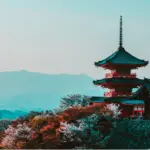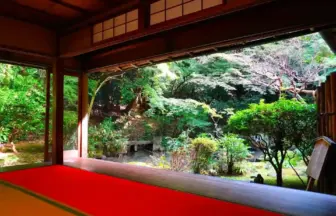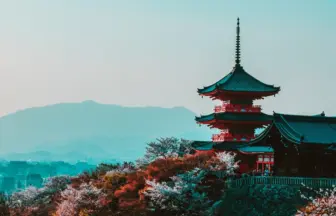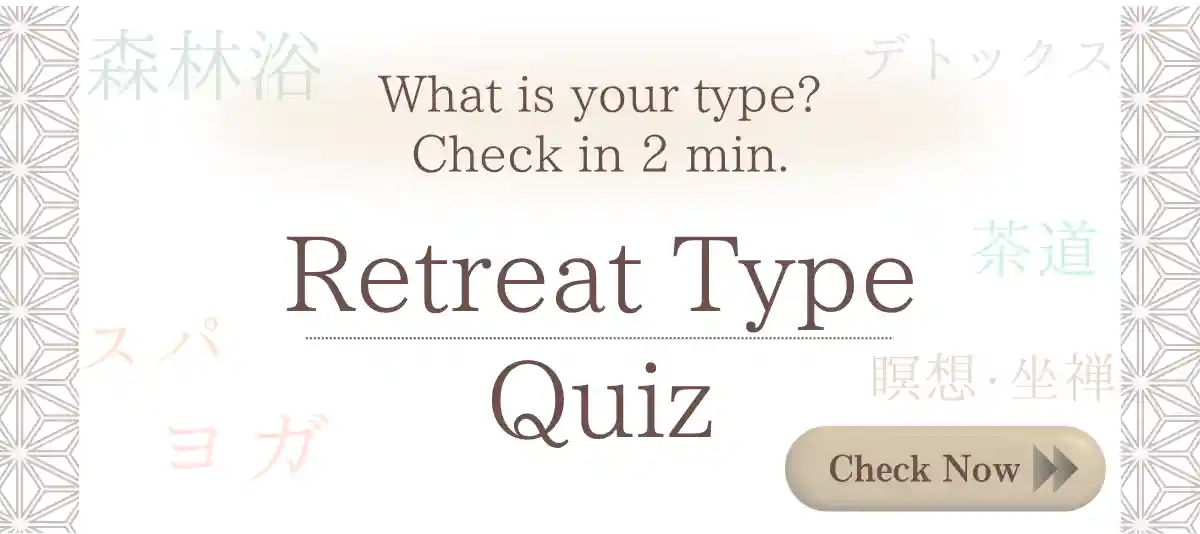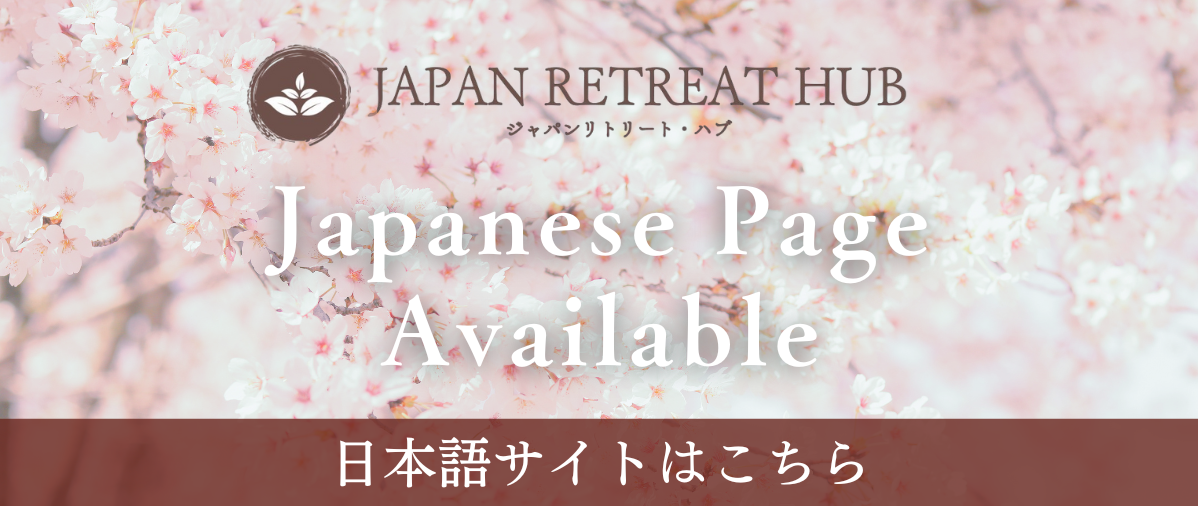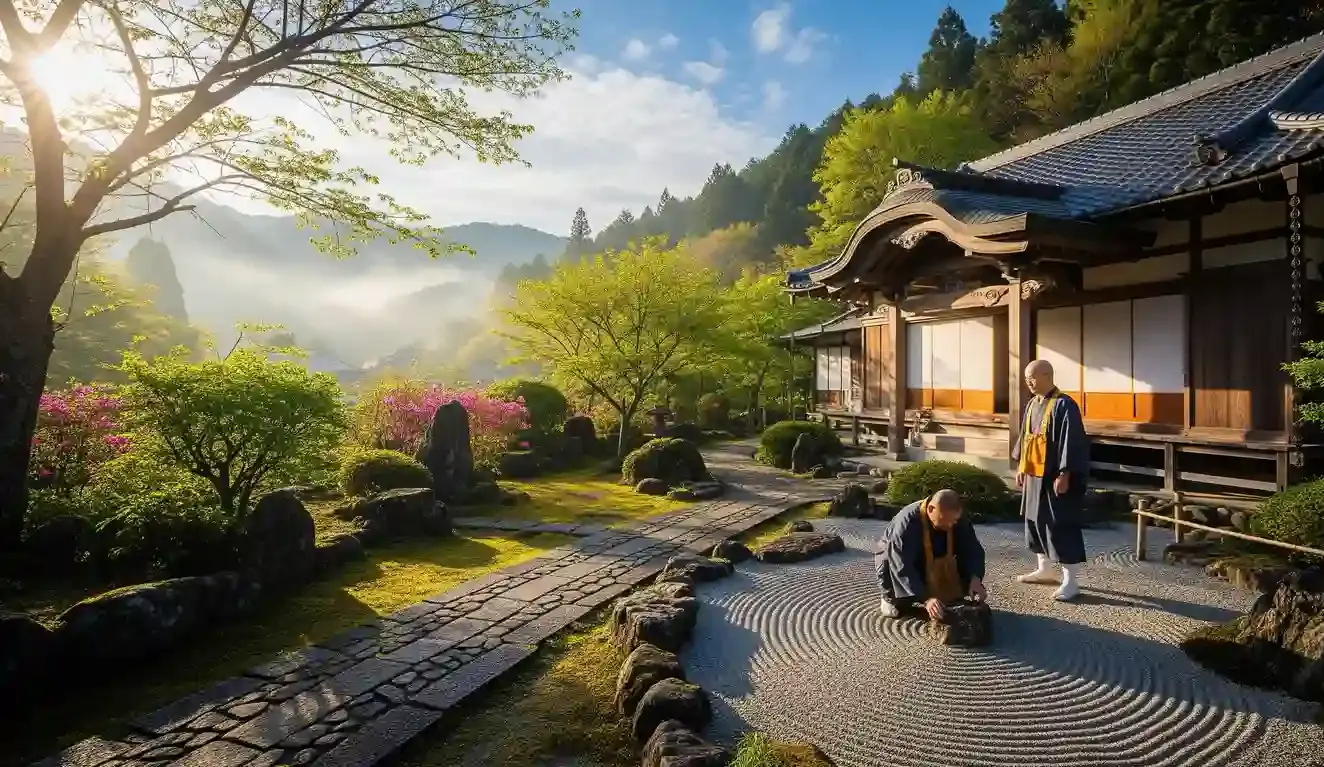
Discovering Shukubo: A Path to Stillness
When we think of travel in Japan, our minds often jump to bustling cityscapes, vibrant neon lights, and magnificent historic castles. But beyond the well-trodden tourist path lies a different kind of experience—a path to true stillness. This is the world of shukubo, a tradition of staying overnight in a Buddhist temple. More than just a room for the night, a temple stay offers an invitation to a world of meditation, quiet reflection, and mindful living.
The Origins of Shukubo
The concept of shukubo dates back over a thousand years. Originally, these temple lodgings were created to welcome weary monks and pilgrims on their spiritual journeys across sacred mountains like Koyasan and Mount Hieizan. They served as places of rest, prayer, and study.
Over time, temples began to open their doors to everyone, regardless of their religious beliefs. Today, a shukubo stay isn’t just for the devout; it’s for anyone who wants to slow down, disconnect from a busy world, and find a moment of peace.
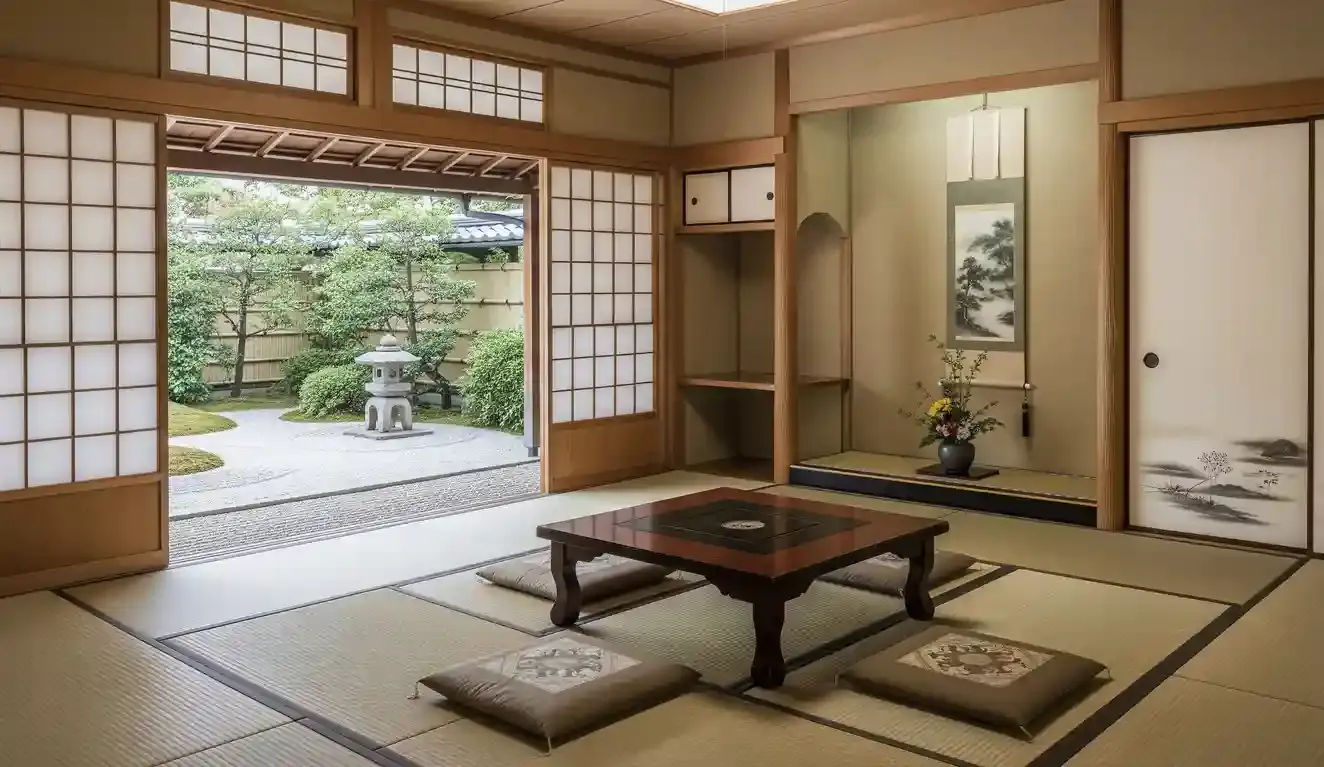
What Awaits You at a Shukubo Stay
Shojin Ryori: A Taste of Zen
One of the highlights of Japanese temple lodging is the cuisine—shojin ryori, or Buddhist vegetarian cooking. Made from seasonal vegetables, tofu, grains, and wild plants, every dish is prepared with care and balance. Free from meat, fish, and strong seasonings, shojin ryori emphasizes mindfulness in both cooking and eating. For many travelers, this meal is a unique part of their temple stay in Japan, offering nourishment for body and spirit.
Meditation and Rituals: Mind, Body, and Soul
A true temple stay experience goes beyond accommodation. These experiences make temple lodging more than just a cultural visit—it becomes a journey inward. Guests are invited to join in daily temple activities such as:
- Morning Prayers (O-tsutome): Begin your day with chanting and the sound of temple bells.
- Zazen Meditation: A central practice in many shukubo stays, focusing on posture and breathing.
- Shakyo (Sutra Copying): Copy Buddhist scriptures by hand, a calming and meditative practice.
- Fire Ceremonies (Goma): Some temples host sacred rituals where prayers are offered into flames.
The Simplicity of Temple Rooms
Leave your modern distractions behind. Shukubo rooms emphasize simplicity, typically featuring traditional tatami mat floors, comfortable futon bedding, and sliding paper doors. There are no TVs, phones, or flashy amenities—just a quiet space that encourages rest and reflection.
This simplicity is at the heart of why so many travelers choose a temple stay in Japan—a rare chance to disconnect and reset.
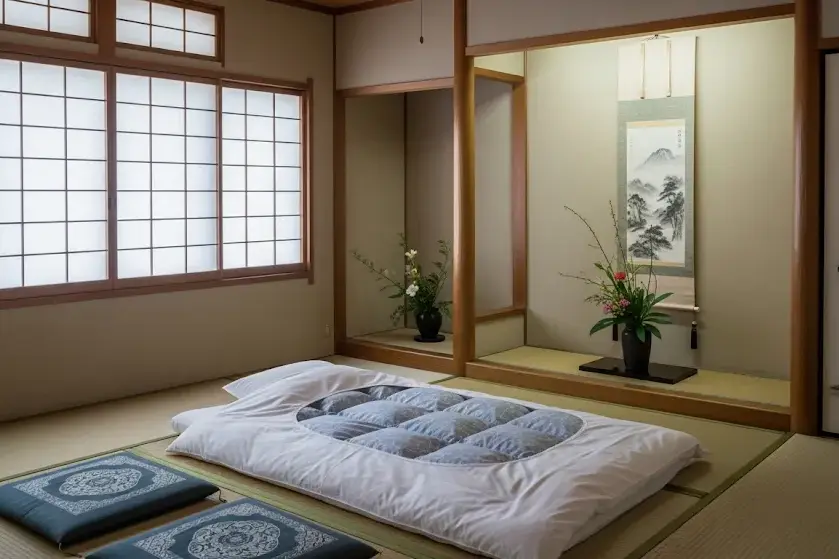
A Day in the Life of a Shukubo Guest
A shukubo stay follows a gentle, simple rhythm that guides your day. This simple flow makes a temple stay an unforgettable rhythm of mindfulness. Here is an example:
- 5:30 am: Your morning begins not with an alarm, but with the subtle sound of the temple bell, signaling the start of a new, peaceful day.
- 6:00 am: Join the monks for morning prayers and meditation as the first light of dawn breaks. It’s a quiet, reflective way to set a calm tone for your day.
- 7:00 am: Enjoy a carefully prepared breakfast of shojin ryori, a delicious vegetarian meal that’s as beautiful to look at as it is healthy.
- Morning: The hours are yours to fill with intention. You might try your hand at sutra copying or take a quiet, meditative walk through the serene temple gardens.
- Afternoon: Spend the afternoon exploring the sacred grounds, walking ancient pilgrimage trails, or visiting historic shrines in the surrounding area.
- Evening: As the day comes to a close, you’ll be served a delightful shojin ryori dinner, a perfect culinary reflection of the temple’s philosophy.
- Night: Retreat to the simple comfort of your quiet futon room, far from the world’s noise, and find a deep, peaceful night’s rest.
Where to Experience Shukubo
While shukubo lodging can be found across the country, a few destinations are especially renowned. Below are some examples, but you can find more places through out website, Japan Retreat Hub.
- Wakayama (Koyasan): The most renowned destination for a temple stay in Japan, Koyasan is a UNESCO World Heritage site and the spiritual heart of Shingon Buddhism. With more than 50 temples offering shukubo lodging, visitors can join morning prayers, savor shojin ryori, and walk through the sacred Okunoin cemetery surrounded by towering cedar trees.
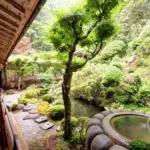
Kongo-Sanmai-In is a historic shukubo (temple lodging) nestled in the quiet embrace of World Heritage–listed Mount Koya. Surrou...
- Yamanashi (Minobu): Home to Kuon-ji Temple on Mount Minobu, the head temple of the Nichiren sect, this area offers a deeply spiritual Japanese temple lodging experience. Guests can participate in sutra chanting, explore historic temple grounds, and enjoy stunning natural surroundings, including views of Mount Fuji.
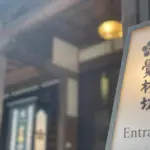
Kakurinbo is a serene shukubo (temple stay) nestled in the tranquility of Minobusan, offering a retreat to rejuvenate both body...
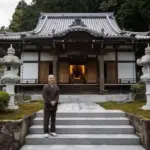
Habanobo, a shukubo (temple lodging) located at the eastern edge of Mt. Minobu, offers a retreat for restoring the body and min...
- Kyoto: Known as Japan’s cultural capital, Kyoto offers numerous opportunities for a temple stay. From Zen meditation in quiet temple gardens to lodging in centuries-old temple complexes, a Kyoto shukubo blends spirituality with easy access to UNESCO heritage sites, tea ceremonies, and traditional townscapes.
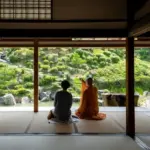
The Chishakuin Kaikan Temple Accommodations is located inside the grounds of Chishakuin Temple, the main head temple of the Chi...

Shoureki-ji is a retreat place designed to help you refresh your mind and body through unique experiences like Bamboo Grove Zaz...
Each region offers a unique take on Japanese temple lodging, whether you’re seeking remote mountain solitude or temple life in a historic city.
Why You Should Try Shukubo
Choosing a shukubo stay in Japan is about more than sightseeing—it’s about transformation. For solo travelers, couples, or families, a temple stay offers a once-in-a-lifetime opportunity to find calm in a fast-paced world. Benefits include:
- Digital Detox: Escape screens and reconnect with the present.
- Cultural Insight: Experience authentic Japanese spirituality.
- Mindfulness: Learn practices like meditation and sutra copying.
- Unique Memories: Unlike hotels, every moment in a temple feels meaningful.
Your Temple Escape Awaits
A shukubo experience is more than accommodation—it’s a profound journey into Japanese culture, spirituality, and simplicity. Whether on sacred Mount Koya or in a quiet Kyoto temple, a Japanese temple lodging stay will likely become the highlight of your trip.
So, on your next visit, step beyond the tourist trail and try a temple stay. It’s not just a night’s rest—it’s an unforgettable life experience.

